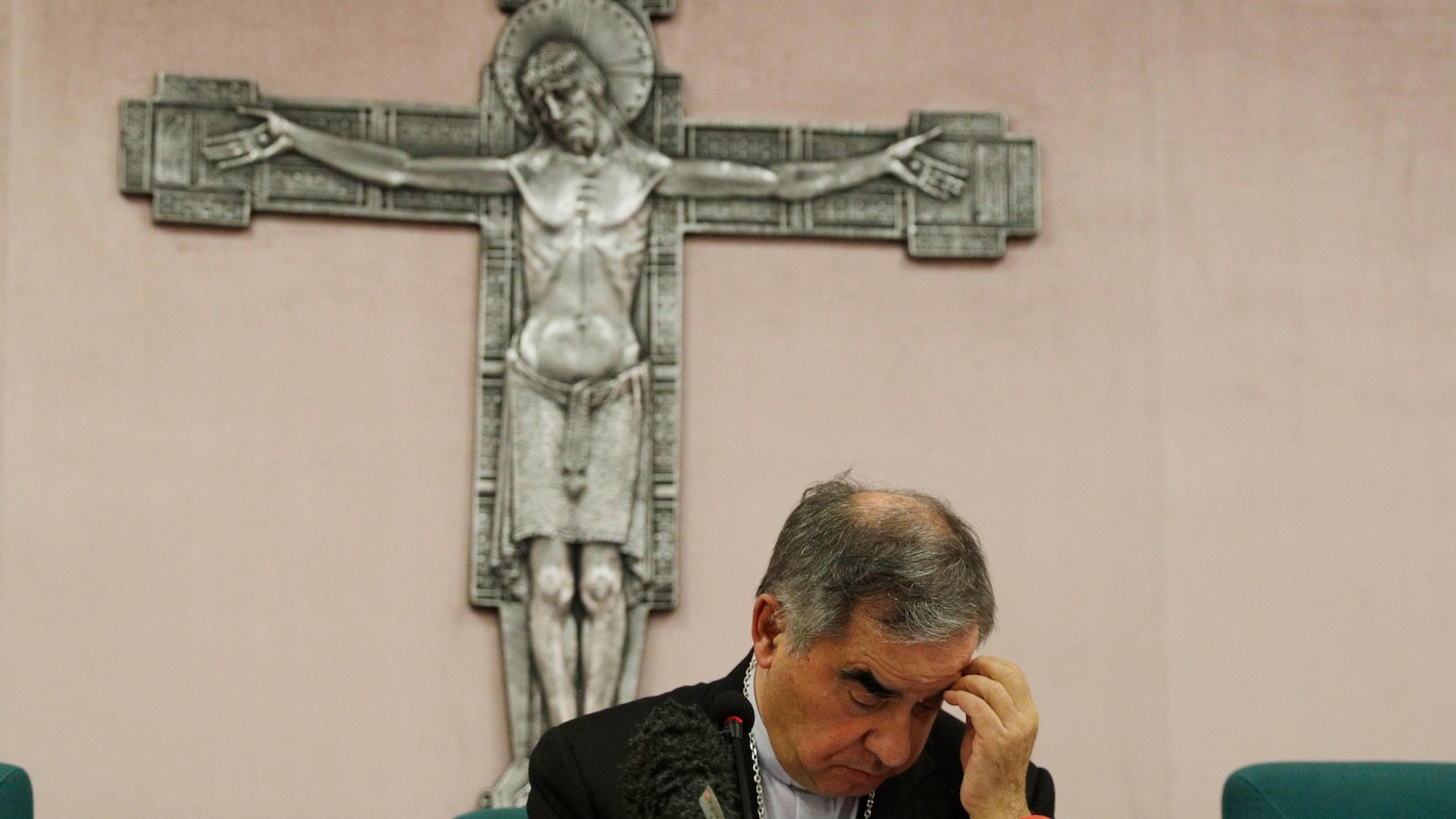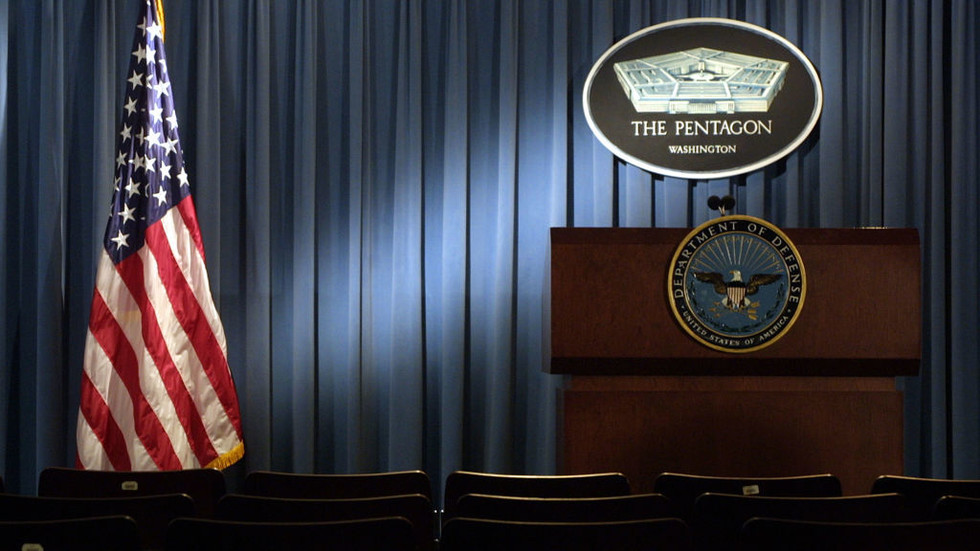As the war in Ukraine gets bloodier, Ukrainian President Volodymyr Zelensky has repeatedly urged members of the NATO alliance to “close the skies.” This appears to be a request for a “no-fly zone” — deploying NATO aircraft to Ukrainian airspace in order to block Russia from using its air force in support of the invasion.
This notion is attracting support in the West. A leading Ukraine expert, a retired US general, and even some politicians in NATO states have proposed such a move. Rep. Adam Kinzinger (R-IL), for example, tweeted on Friday that the US should “declare a #NoFlyZone over Ukraine” designed to disrupt Russia’s air operations and “give the heroic Ukrainians a fair fight.”
This is a catastrophic idea. Stripped of cant, the US announcing a no-fly zone in Ukraine would be an American declaration of war on Russia — the first major conflict between the two nations that, put together, control 90 percent of the world’s nuclear weapons.
“A No Fly Zone is not a magical umbrella that prevents planes flying in a given area. It’s a decision to shoot at planes that fly in a given area,” explains Olga Oliker, the International Crisis Group’s director for Europe and Central Asia. “To put in a no fly zone is to go to war.”
The Biden administration appears to recognize the risk. In a Thursday press conference, President Biden categorically ruled out direct US intervention in Ukraine: “Our forces are not — and will not — be engaged in the conflict with Russia in Ukraine.” This effectively takes any meaningful no-fly zone off the table, and there is no sign the president will change his mind.
Yet the calls for a no-fly zone (NFZ) are worth taking seriously because of what they reveal about a widespread yet mistaken mindset among many of America’s foreign policy elite. The people calling for intervention in Ukraine are stuck in the 1990s era of American hyperpower, where it seemed as though the US could impose its vision of global order at gunpoint virtually anywhere. The Ukraine war is one of the clearest demonstrations yet that this era is over — and a US policy that refuses to recognize this reality could prove catastrophic.
A Ukraine no-fly zone would put the world on the brink of nuclear war
The US and its allies have used no-fly zones three times in the recent past: Iraq after the Gulf War, Bosnia during the mid-90s conflict, and Libya during the 2011 intervention. In each of those cases, the US and its partners were facing vastly inferior military forces. There was no real question about their ability to take control over the skies.
Russia is an entirely different story. Its air force dwarfs Ukraine’s; it is second in size only to the US Air Force. An attempt to impose an NFZ in Ukraine would be nothing like these previous engagements, and it’s not even clear that it would be possible.
According to USAF Lt. Col. Tyson Wetzel, the Air Force doesn’t have the appropriate amount of planes near Ukraine to launch such a mission in the immediate future. Even more important, he argues, any effort to establish an NFZ over Ukraine would get NATO directly involved in a conflict it has been staying out of — and have a “near 100% chance of leading to direct US/Russia armed conflict.”
Russia has deployed something like 60 percent of its entire land forces to the Ukraine theater; it does not want to fail. It almost certainly would not roll over and accept NATO control of the skies over Ukraine: Russian forces would fight back. And that would mean direct war between nuclear-armed powers.
“An NFZ can’t just be established, it must be enforced,” writes Rachel Rizzo, a senior fellow at the Atlantic Council’s Europe Center. “It means NATO allies would have to commit to shooting down Russian planes.”
:no_upscale()/cdn.vox-cdn.com/uploads/chorus_asset/file/23275334/111953848.jpg)
On Twitter, Kinzinger argued that Russia would back down before it got to that point — citing a 2018 engagement in Syria between US Special Forces and a force primarily composed of Russian mercenaries as proof. “We killed 400 Russians in Syria, Putin went silent,” as he put it. (The casualties actually appear to be between 200 and 300 fighters, not all of whom may have been Russians. Kinzinger’s office declined a request to comment.)
Yet there’s a world of difference between a limited skirmish far away from Moscow’s borders and a full-scale battle over land that Putin views as rightfully Russian.
In Syria, the US and Russia were not interested in fighting each other: the US forces were there to fight ISIS, while the Russians were there to support dictator Bashar al-Assad against various insurgent groups. The Americans and the Russians had direct communication mechanisms, called deconfliction lines, designed to ensure that there were no deadly accidents. Before the US engaged the Russian mercenaries Kinzinger mentioned, then-Secretary of Defense Jim Mattis spoke directly to his counterparts in Moscow, who told him that they were not official Russian forces — essentially greenlighting an American attack without any serious risk of escalation.
The situation in Ukraine is entirely different. This would not be an incidental clash between forces with different objectives; the entire point of the US intervention would be to help defeat Russia’s invasion.
The chances that the Russians would give up on the entire project of invading Ukraine as easily as they abandoned a small force of mercenaries to their fate are tiny — and the risks of a direct US-Russia shooting war are apocalyptic. In his speech this week declaring war on Ukraine, Putin all but openly vowed that any international intervention in the conflict would trigger nuclear retaliation.
“To anyone who would consider interfering from the outside: If you do, you will face consequences greater than any you have faced in history,” the Russian president said. “I hope you hear me.”
One might argue that Putin’s threat is a bluff, but there are good reasons to take the risks seriously.
For one thing, it is consistent with Russia’s general position on the use of nuclear weapons. “Their nuclear strategy envisions possible first use if they are losing a conventional conflict or facing an existential threat,” says Nick Miller, a Dartmouth College expert on nuclear weapons.
For another, wars have a way of escalating beyond anyone’s control. When bullets and missiles are flying, it is very hard to get an accurate sense of what your opponent is planning to do. It’s eminently conceivable that, in the midst of an open war between the United States and Russia, one side could erroneously think that the other is about to launch nuclear weapons and decide to strike first.
There are several examples from the Cold War, when tensions were lower than they would be during an outright conflict, that illustrate this logic.
In 1983, for example, Soviet Lt. Col. Stanislav Petrov was alerted by an early warning system that a US nuclear strike was likely incoming. Had Petrov informed his superiors of that message, it’s very likely they would have launched missiles in response. Yet Petrov and his staff correctly concluded this was a false alarm and chose to say nothing — potentially saving hundreds of millions, if not billions, of lives.
During a full-on war between the United States and Russia, there would be plenty of incidents that could lead to this kind of accidental nuclear escalation. Putin has already ordered Russian nuclear forces on high alert as tensions rise with the West.
As horrible as the war in Ukraine is, no rational or responsible American leader could risk the destruction of the American homeland — and quite possibly the entire human race — to stop it.
There won’t be a no-fly zone in Ukraine, but the calls for one still matter
President Joe Biden, thankfully, appears to have learned the lessons of the Cold War. He has very clearly ruled out any kind of direct US intervention in Ukraine; there is no evidence that his mind will change.
To a certain extent, then, the calls for a no-fly zone are pious noise: an empty demand to “do something” about an atrocity. Yet they also illustrate a deep problem in the way some in leadership positions think about foreign affairs.
No-fly zones as a military concept distinct from traditional intervention only make sense as a kind of police action: designed to stop the use of air power, especially against civilians, rather than to decide the conflict in favor of one side. In practice, this can be a distinction without a difference — see Iraq or Libya in 2011, where NFZs preceded regime-change operations — but it’s what separates an NFZ from a larger war.
This makes sense when you think of the American military as a kind of global peacekeeping force, used for preventing atrocities and toppling rogue autocrats like Saddam Hussein and Muammar Qaddafi. But today’s aggression is not being launched by an isolated tinpot dictator: Its author is Vladimir Putin, leader of Russia and possessor of 6,000 nuclear warheads.
To even speak of a no-fly zone in Ukraine is to wrongly import categories from a more recently familiar kind of conflict. For the past few decades, the principal questions about the use of force have centered on terrorists and conflicts in weak states like Libya, Iraq, and Syria. In these situations, it was easy to think of the US military as a tool for defending the international order against a handful of rogue threats.
Aggression by a major power calls the very idea of “global order” into question. There are no longer rules largely accepted by the world’s leading states, if there ever were. At least for now, we have returned to a time of conflict between the most powerful countries over what the nature of those rules should be. We can’t treat Russia like it’s ISIS or Qaddafi; the brute realities of the balance of military force change the kinds of tactics and strategies we can bring to bear.
:no_upscale()/cdn.vox-cdn.com/uploads/chorus_asset/file/23275338/1238175215.jpg)
To be clear, this doesn’t mean the US is powerless or that the only way forward is to leave Ukrainians to fight Russia on their own. There is plenty the United States can do in response to Russia’s aggression. Stepping up sanctions, flooding Ukraine with advanced weapons, opening discussions on adding Finland and Sweden to NATO — all of these are real options that could impose costs on the Kremlin and frustrate Putin’s designs on Ukraine and Eastern Europe.
It’s also important to note that nuclear blackmail goes both ways, placing real constraints on Putin’s regional ambitions. Even if his war on Ukraine is successful — a big if — Putin will think twice about attempting similar aggression against NATO members in former Soviet and Eastern Bloc states because doing so would likely trigger direct allied involvement. There’s a reason the US is deploying more troops to NATO’s eastern flank right now: to signal to Putin that the West’s commitment to their defense is serious.
But the blunter tool of direct military intervention in Ukraine, through a no-fly zone or otherwise, is off the table for very good reason. In international politics, powerful enemies are simply different from weak ones — especially powerful enemies who have nuclear weapons.





















